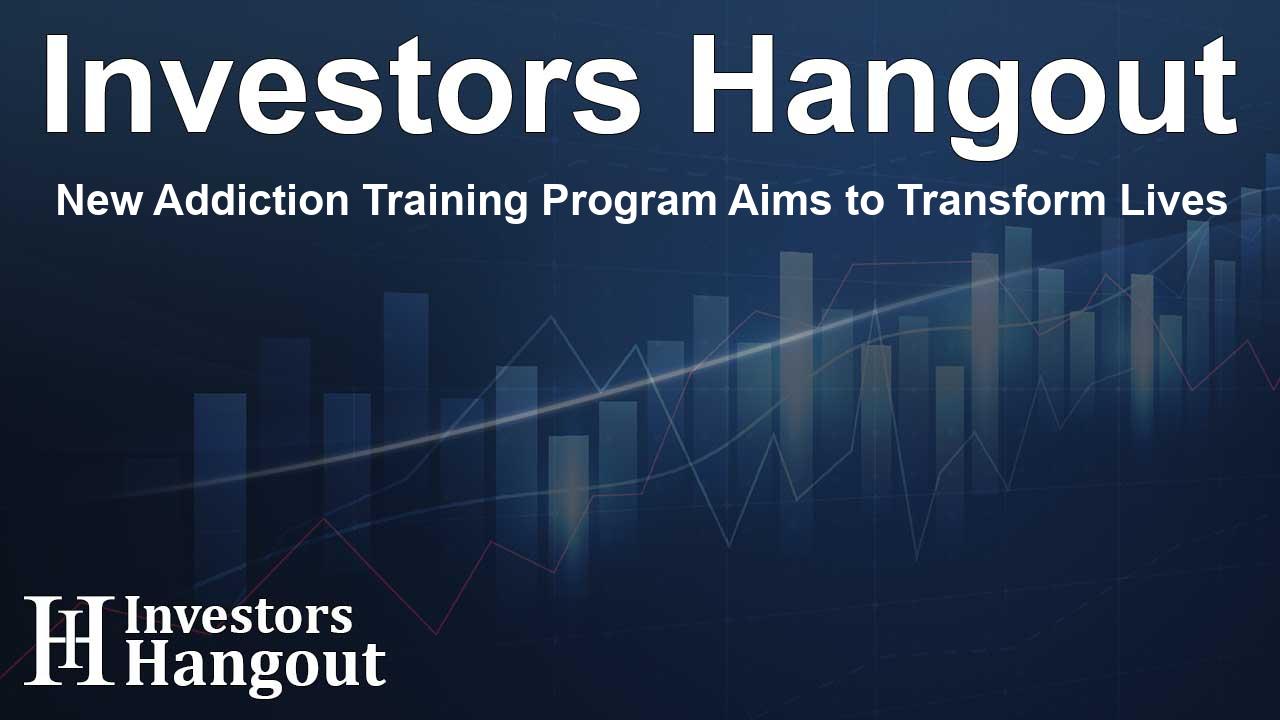New Addiction Training Program Aims to Transform Lives

Understanding the enCompass Program and Its Impact on Stigma
The enCompass program is an innovative initiative created by the Addiction Policy Forum, designed to combat the stigma surrounding addiction. This nonprofit organization aims to correct common misconceptions about addiction and equip family members with the necessary tools to support loved ones facing substance use disorders (SUD).
Key Components of enCompass
One of the key features of the enCompass program is its comprehensive curriculum that encompasses various aspects of addiction, including essential knowledge on treatment and recovery. Participants engage in an extensive 8-hour training session. Throughout this course, misconceptions about SUD are addressed, and best practices are shared to ensure a robust understanding of the subject.
Positive Outcomes from Program Evaluations
Initial evaluations of the enCompass program have yielded promising results. Participants reported a reduction in stigma related to SUD, alongside a noticeable improvement in their knowledge about addiction. This knowledge shift highlights the program's potential to foster a more informed and compassionate perspective on addiction.
The Role of Community Initiatives
This initiative gained traction through a collaboration with Governor Mike DeWine’s RecoveryOhio initiative and the Ohio Department of Mental Health and Addiction Services. The program was rolled out to 429 individuals across 21 counties known for high overdose rates in the previous year.
Understanding the Stigma Attached to Addiction
The stigma surrounding addiction can have far-reaching consequences. Research indicates that individuals facing addiction stigma often struggle to seek help or access treatment, leading to prolonged substance use and higher drop-out rates from recovery programs. This isolation hampers both individuals and families affected by addiction, further complicating their battle against the disease.
Commitment to Education and Support
Aimee Shadwick, Director of RecoveryOhio, expressed satisfaction with the outcomes achieved through the enCompass program. She emphasized the administration's dedication to enhancing community understanding of addiction and addressing the misconceptions that persist. By providing Ohioans with essential insights into addiction, the program serves as a pivotal step towards reducing stigma and building a welcoming community for those in need.
Expert Insights on Stigma Reduction
Dr. Valerie Earnshaw, an associate professor specializing in human development, stated that the study's findings indicated a decrease in stigma among participants after they completed the enCompass training. She asserted the importance of not only educating those experiencing addiction but also spreading awareness throughout communities. Stigma reduction is vital for encouraging individuals to access treatment sooner and remain engaged in their recovery journey.
Taking Steps Toward a Healthier Future
As the enCompass program continues to evolve, its potential to reshape perceptions of addiction offers hope for many. The program serves as a gateway to greater understanding, reducing stigma, and fostering supportive environments for families and friends of individuals struggling with addiction.
Frequently Asked Questions
What is the enCompass program?
The enCompass program is an initiative by the Addiction Policy Forum aimed at reducing stigma surrounding addiction and providing education on substance use disorders.
How long is the enCompass training?
The training for the enCompass program lasts approximately 8 hours, covering essential topics related to addiction, treatment, and recovery.
Who developed the enCompass program?
The enCompass program was developed by the Addiction Policy Forum, a nonprofit organization focused on addressing issues related to addiction.
What outcomes have been observed from the program?
Participants in the enCompass program have shown a decrease in stigma and an increase in their understanding of addiction following the training.
How does stigma affect individuals with addiction?
Stigma can lead to delayed treatment, lower engagement in recovery, and feelings of isolation for individuals facing addiction challenges.
About The Author
Contact Lucas Young privately here. Or send an email with ATTN: Lucas Young as the subject to contact@investorshangout.com.
About Investors Hangout
Investors Hangout is a leading online stock forum for financial discussion and learning, offering a wide range of free tools and resources. It draws in traders of all levels, who exchange market knowledge, investigate trading tactics, and keep an eye on industry developments in real time. Featuring financial articles, stock message boards, quotes, charts, company profiles, and live news updates. Through cooperative learning and a wealth of informational resources, it helps users from novices creating their first portfolios to experts honing their techniques. Join Investors Hangout today: https://investorshangout.com/
The content of this article is based on factual, publicly available information and does not represent legal, financial, or investment advice. Investors Hangout does not offer financial advice, and the author is not a licensed financial advisor. Consult a qualified advisor before making any financial or investment decisions based on this article. This article should not be considered advice to purchase, sell, or hold any securities or other investments. If any of the material provided here is inaccurate, please contact us for corrections.
